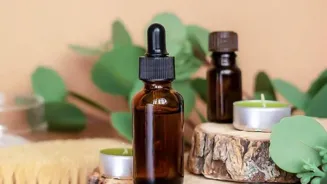Unlock the Secrets: 7 Timeless Ayurvedic Skincare Rituals Everyone Swears By! Dive into ancient wisdom for radiant skin!
For centuries, Ayurveda, the ancient Indian system of medicine, has offered a holistic
approach to health and well-being. Its principles extend far beyond just treating ailments; they encompass lifestyle choices, diet, and skincare.
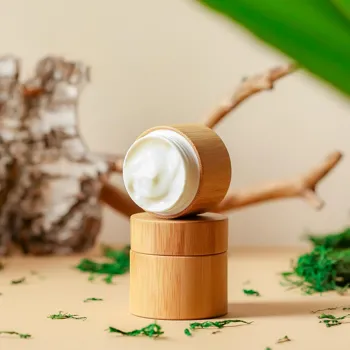
Forget the latest synthetic creams and chemical peels, because more and more people are turning to the wisdom of Ayurveda for radiant, healthy skin. These age-old rituals are not just trendy; they're based on a deep understanding of the body's natural rhythms and its connection to the environment.
Ready to unlock the secrets to glowing skin the Ayurvedic way? Read on to discover seven timeless rituals that everyone is raving about!
Understanding Doshas in Ayurvedic skincare is key to balanced skin
The very first step into building a perfect skin through Ayurveda is understanding your "Dosha". These are basically energies that are present in different proportions in each person, affecting their physical and mental characteristics.
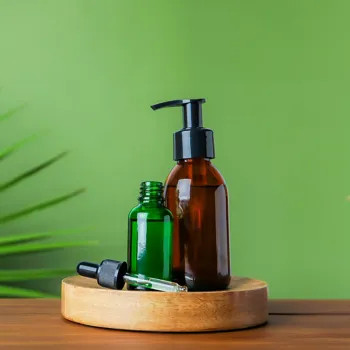
The three Doshas are Vata (air and ether), Pitta (fire and water), and Kapha (earth and water). Once you understand your dominant Dosha, you can easily tailor your skincare routine to balance your unique needs. For example, Vata skin tends to be dry and needs extra moisture.
Pitta skin is sensitive and prone to inflammation, requiring cooling and soothing ingredients. Kapha skin can be oily and congested, benefiting from exfoliation and detoxification. Knowing your Dosha acts as a personal guide to choosing the right products and practices.
By aligning your skincare with your inherent constitution, you can achieve optimal skin health and radiance. Ayurvedic practitioners often recommend assessing your Dosha through questionnaires or consultations, but even a little bit of self-reflection can help you start down the right track.
So, take the time to understand your Dosha is like unlocking a personal code for your unique skin needs.
Daily oil massage ritual promotes self-love, nourishment, and skin health
The second ritual to follow is "Oil Massage" or Abhyanga . This goes beyond a simple aromatherapy bath; it's a daily act of self-love and nourishment. This practice involves massaging warm oil onto your skin, stimulating circulation and promoting lymphatic drainage.
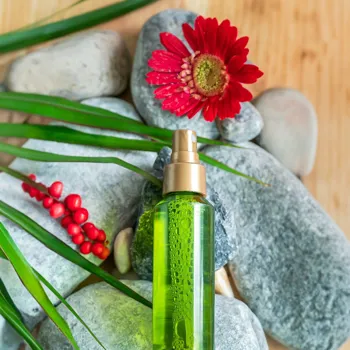
The benefits are multifold: it hydrates dry skin, calms the nervous system, and helps to remove toxins. Many people find it particularly beneficial during the colder months when the skin tends to become drier.
Commonly used oils include sesame oil for Vata, coconut oil for Pitta, and sunflower oil for Kapha but you can choose according to your liking. The ritual is simple. Warm the oil slightly, then massage it into your skin using long strokes on the limbs and circular motions on the joints.
Allow the oil to soak in for at least 15-20 minutes before showering or bathing. Abhyanga isn't just about skincare; it's about connecting with your body and cultivating a sense of inner peace. When incorporated into your daily routine, this easy ritual can help you achieve a healthy glow.
Embrace Ubtan: a natural Ayurvedic cleanser for radiant skin
Next, incorporate cleansing to your rituals. Ubtan is a traditional Ayurvedic face and body cleanser made with a blend of natural ingredients. Unlike harsh soaps that strip the skin of its natural oils, Ubtan gently cleanses, exfoliates, and brightens the skin.
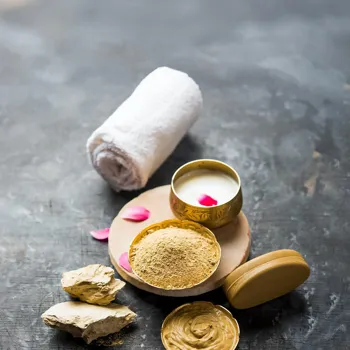
Recipes vary but typically include ingredients like gram flour, turmeric, sandalwood powder, rosewater, and milk. These ingredients work together to remove impurities, improve skin tone, and leave your skin feeling soft and smooth.
Many people find its refreshing properties, especially during summers. To use Ubtan, mix a small amount of the powder with water, rosewater, or milk to form a paste. Gently massage the paste onto your skin in circular motions, then rinse with warm water.
You can customize your Ubtan recipe based on your Dosha. For example, those with Vata skin can add nourishing ingredients like almond powder and honey. Pitta skin benefits from cooling ingredients like sandalwood and aloe vera.
Kapha skin can use ingredients like neem and multani mitti which helps remove excess oil and brighten the skin. Embracing Ubtan is like reviving an age-old wisdom and allowing the blessings of nature.
Rosewater: Ayurvedic toner for balanced, glowing skin
After cleansing comes "Toning". Rosewater is a classic Ayurvedic toner known for its soothing and astringent properties. It helps to balance the skin's pH levels, tighten pores, and hydrate the skin. Rosewater is also a natural anti-inflammatory, making it suitable for sensitive and acne-prone skin.
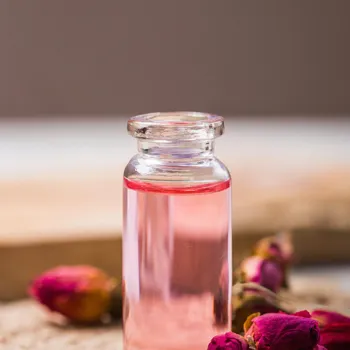
It is easy to see why many consider it the heart of skin. It is gentle, refreshing, and adds a natural glow. The application is so easy, simply spritz it onto your face after cleansing or use a cotton pad to apply it evenly. You can also use it throughout the day to refresh and hydrate your skin.
For an extra cooling effect, store your rosewater in the refrigerator. Rosewater is a simple yet effective addition to any skincare routine. Its gentle nature makes it suitable for all skin types and its delicate fragrance provides a calming and uplifting experience.
Using rosewater is like treating your face to a gentle shower of dewdrops, leaving it balanced and soothed.
Ayurvedic face masks benefit skin with natural ingredients
Then comes the application of face masks. Ayurvedic face masks are powerful tools for addressing specific skin concerns. These masks are typically made with a blend of herbs, clays, and other natural ingredients.
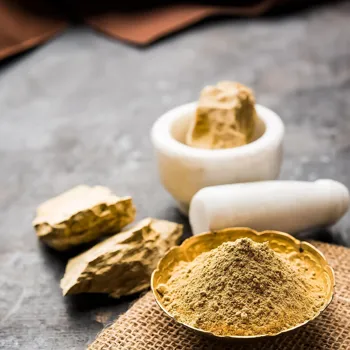
Multani Mitti (Fuller's Earth) is a popular choice for oily and acne-prone skin, helping to absorb excess oil and impurities. Sandalwood powder is known for its cooling and soothing properties, making it ideal for sensitive and irritated skin.
Turmeric possesses antibacterial and anti-inflammatory properties, making it effective for treating acne and blemishes. The best part of Ayurvedic face masks is being able to customize the ingredients.
To use an Ayurvedic face mask, mix the powder with water, honey, yogurt, or rosewater to form a paste. Apply the paste to your face and neck, avoiding the eye area. Let it dry for 15-20 minutes, then rinse with warm water. A little goes a long way, a pinch of each ingredient does the trick.
Regular use of Ayurvedic face masks can help to improve skin tone, texture, and overall radiance.
Ayurveda promotes sun protection alongside natural ingredients for healthy skin
Lastly, always keep in mind "Sun protection" in the Indian summers. While Ayurveda emphasizes natural ingredients, it also recognizes the importance of sun protection.
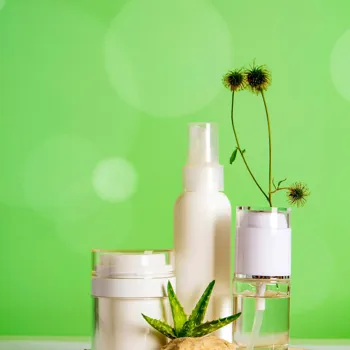
Though traditional Ayurvedic texts might not directly mention sunscreen as they are known today, the principles of protecting the skin from the sun's harmful rays are deeply embedded in the practice. Ingredients like aloe vera, coconut oil, and sesame oil have natural sun-protective properties.
These ingredients can help to soothe and protect the skin from sun damage. However, it's important to note that these natural remedies may not offer the same level of protection as modern sunscreens like SPF 30 or higher.
Integrating sun protection into your Ayurvedic skincare routine is essential for maintaining healthy and youthful-looking skin. Also, while Ayurveda may have its own ingredients, it still highly encourages the use of SPF 30 sunscreen during the day.
Ayurvedic skincare rituals for radiant, healthy skin
Incorporating these seven timeless Ayurvedic skincare rituals into your daily routine can transform your skin and your overall well-being. Remember, Ayurveda is not a quick fix; it's a lifestyle. Be patient, consistent, and listen to your body.
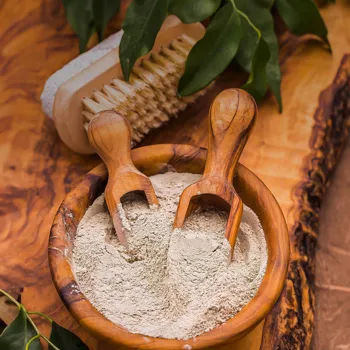
With dedication and a little bit of knowledge, you can unlock the secrets to radiant, healthy skin the Ayurvedic way. So, embrace the ancient wisdom and embark on a journey to glowing skin from the inside out!
